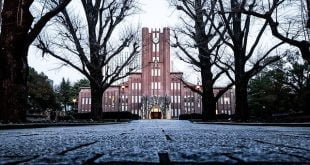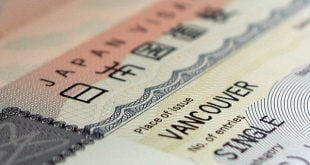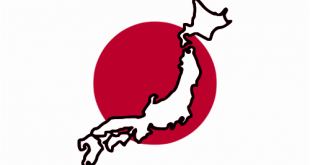The birthplace of sushi, origami, manga and anime and more, Japan has been a popular destination for studies in the last few decades. The country has several of the world’s top student cities and best universities. And if you plan to move to Japan for long-term study purpose, you’ll certainly want to find a place that is both comfortable and affordable. And since you should make your housing arrangements as soon as you receive an acceptation letter from a Japanese university, we’ve compiled for you everything to know when it comes to student accommodation in Japan.
Where do international students live in Japan?
Among all the student cities in Japan, a large percentage of university students live in the Tokyo area. But this part of the country being among the most expensive places to live, there is no shortage of options for student housing and accommodation.
Upon your arrival in Japan, there are a some temporary housing solutions you can check out. For a more permanent accommodation, students usually stay whether in dormitories, share houses, or rent an apartment.
Guesthouses as a temporary student accommodation in Japan
For short stays in Japan, students usually live in guest houses or what Japanese people call “the foreigner houses”. It’s an inexpensive student accommodation option for those who want to rent a place for a short period of time. In these guesthouses, students share the space with other international and Japanese students.
Students generally rent a furnished room with internet connection, and share the kitchen and all other facilities. Some guest houses can be very large with the capacity of up to 50 people in one building. Others, however are quite small with only 5 to 6 people sharing the place. Upon your arrival in the country, you can check out which of these options work best for you.
Moreover, guesthouses are also a great solution for your first months living in Japan, before you find your permanent student housing. This is because within your first 14 days in Japan, you absolutely need to register your place of residence at the municipality office of your city.
Student dorm in Japan
Rooms in dormitories are the other affordable student accommodation you can get in Japan. The related overall costs are also lower with this type of housing. Some dorm rooms in Japan can come with furniture, electrical appliances and other basic utilities. The same goes with bathroom, which can be common or private.
Moreover, when renting a room in dormitories in Japan, you don’t need any security deposit, renewal fees or gratuity money as it is the case for other rentals. There are some cons though, starting with the limited number of rooms available. Also, privacy can be a little tricky to get and students need to abide to some rules such as curfew in this type of accommodation.
Share houses
This is the most economical student accommodation option you can get in Japan. If you choose to live in a share house, you have your own bedroom. However, you’ll share other spaces such as the kitchen, laundry room and the living room. This is the perfect way to connect with other students as share house companies usually hold social events to encourage students to interact with one another.
At student houses, you usually pay a monthly amount that covers both your rent and utilities. Bedroom usually includes a desk and a chair, and you share kitchen utensils and kitchenware with other students.
Can I rent an apartment in Japan as a student?
For those who prefer to have their own privacy and their own space, renting an apartment is the best option. Obviously, they’ll cost more, especially if you rent a place in the Tokyo area. They might also be smaller, but the problem with student apartments in Japan usually has to do with the rental agreement.
Moreover, in many cases, you will have to pay beforehand a security deposit, shiki-kin, equivalent to a few months of rent, a gratuity money – rei-kin, the real estate agent’s commissions among other fees. There are also some cases when renting an apartment in Japan that you’ll need to find a joint guarantor.
This is a person who will co-sign your rental contract with you and who will pay any overdue rent or damage reparation you cannot pay. However, for international students, who have not enough Japanese connections, a school-related person can serve as their joint guarantor. The last option is to hire the service of a “guarantor company”.
Living with a host family in Japan
Although rare, this is another way to quickly immerse in the Japanese culture and society during your stay in Japan. This is also an excellent option if you’re in Japan for a few months or weeks to learn the Japanese language. In return, you are expected to help with the chores and be a respectful guest with the host family.
The cost of student housing in Japan
Rent in Japan varies depending on the type of accommodation, the area and several other factors in the case of student apartments. Usually, for dormitories, you’ll spend a monthly amount of 28,000 yen (about $140).
The average national cost of a student housing is approximately 38,000 yen (about $295). But in the Tokyo area the average can rise up to 65,000 yen per month (about $503) for a room in a share house.
Apartments which are the less affordable option can cost up to 100,000 yen ($775) in the Tokyo area. However, in suburb and more rural areas, rent cost between 30,000 and 40,000 yen ($230-$310). Apart from the rent, you need to consider other related expenses such as the fees for common services. These can cost between 3,000 and 5,000 yen ($23-$40) per month.
As for the utility cost, water, gas and electricity bills expenses amount between 1,500 and 2,500 yen ($12-$19)each. Internet connection costs around 3,500 yen (about $27). Lastly, Japan has some strict rules when it comes to garbage disposal. So to avoid any conflict, make sure to abide to the guidelines regarding the location and time you should dispose of your garbage.
Read also our guide on the tuition fees and cost of living in Japan for students.
Additional advice regarding student accommodation in Japan
Despite the fact that the Japanese government and universities offering student dormitories, their numbers are limited. That’s why international students in Japan usually choose private accommodation. To increase your chance to get the right housing for you, make sure to start searching as soon as you get your acceptance letter from the university. When doing your research, make sure to consider the rent and initial costs you should spend. Expect to spend a lot if you choose Tokyo as your study destination.
Moreover, the other factors to take into account include the distance from your university and the necessary time to reach it. Check also what how you can commute to and from your place to school. Next is the size of the place you plan to rent and the facilities included, furniture, private and shared spaces, etc. Lastly check the surrounding of the place: how far is the distance to public transportation, shopping centers, etc.
Upon moving to the student accommodation of your choice, at your arrival to Japan, you need to register at the local civic center within 14 days. That is why, hotels, inns or Airbnb might be not very convenient since you’ll need to register with your residence address. This registration is necessary in order to receive a residence card, the ID document you’ll use in Japan instead of your passport.
Learn more in our article on how to get a student visa to Japan.
Before you move out to another city or place, you need to submit a moving-out notice and receive a moving-out certificate before you leave for your new address. This document is free of charge and will be useful when you register your new address at your new municipal office.
Learn how the Shiki-kin / Rei-kin work
The rental system in Japan have some rules that you need to learn before moving in the country. Among them are the shiki-kin and rei-kin amounts you should pay to the landlord after you sign your rental contract.
Shiki-kin, literally key-money and/or deposit: is an amount you should pay as a security money to the landlord for possible damages on his property. This is a refundable fee that you’ll get back after vacating the room and that it was established that there is no delinquency or rent or damage to the place.
Rei-kin or remuneration, on the other hand is non-refundable. You also pay it when the contract is signed. Unlike the deposit money, the amount of the rei-kin is negotiable. Together, the shiki-kin and rei-kin can amount to about 2 to 4 times the monthly rent.




 Aljawaz Your guide to study abroad
Aljawaz Your guide to study abroad













